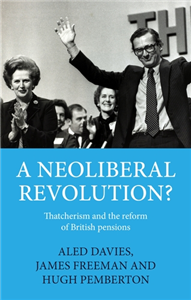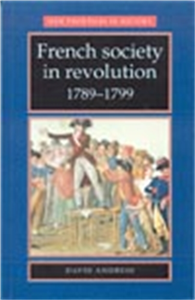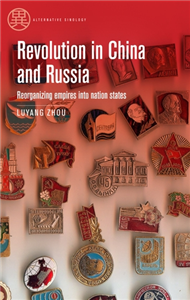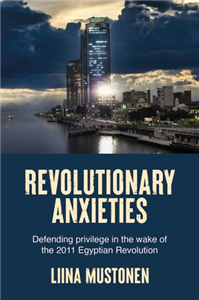Your Search Results
-
Promoted Content
-
Promoted Content
-
 Trusted Partner
Humanities & Social SciencesJune 2026
Trusted Partner
Humanities & Social SciencesJune 2026A neoliberal revolution?
Thatcherism and the reform of British pensions
by Aled Davies, James Freeman, Hugh Pemberton
This book examines the Thatcher government's attempt to revolutionise Britain's pensions system in the 1980s and create a nation of risk-taking savers with an individual stake in capitalism. Drawing upon recently-released archival records, it shows how the ideas motivating these reforms journeyed from the writings of neoliberal intellectuals into government and became the centrepiece of a plan to abolish significant parts of the UK's welfare state and replace these with privatised personal pensions. Revealing a government that veered between political caution and radicalism, the book explains why this revolution failed and charts the malign legacy left by the evolutionary changes that ministers salvaged from the wreckage of their reforms. The book contributes to understanding of policy change, Thatcherism, and international neoliberalism by showing how major reforms to social security could reflect neoliberal thought and yet profoundly disappoint their architects.
-
 Trusted Partner
Humanities & Social SciencesJuly 2024
Trusted Partner
Humanities & Social SciencesJuly 2024A neoliberal revolution?
Thatcherism and the reform of British pensions
by Hugh Pemberton, James Freeman, Aled Davies
This book examines the Thatcher government's attempt to revolutionise Britain's pensions system in the 1980s and create a nation of risk-taking savers with an individual stake in capitalism. Drawing upon recently-released archival records, it shows how the ideas motivating these reforms journeyed from the writings of neoliberal intellectuals into government and became the centrepiece of a plan to abolish significant parts of the UK's welfare state and replace these with privatised personal pensions. Revealing a government that veered between political caution and radicalism, the book explains why this revolution failed and charts the malign legacy left by the evolutionary changes that ministers salvaged from the wreckage of their reforms. The book contributes to understanding of policy change, Thatcherism, and international neoliberalism by showing how major reforms to social security could reflect neoliberal thought and yet profoundly disappoint their architects.
-
 Trusted Partner
Humanities & Social SciencesApril 1999
Trusted Partner
Humanities & Social SciencesApril 1999French society in revolution 1789–1799
by David Andress, Mark Greengrass
French society in revolution aims to retrieve the social history of the French Revolution from unjustified neglect. This study examines both the structural and cultural elements behind the breakdown of the eighteenth-century monarchic state and its aris. . . . ;
-
 Trusted Partner
Humanities & Social SciencesMarch 2019
Trusted Partner
Humanities & Social SciencesMarch 2019Waiting for the revolution
The British far left from 1956
by Evan Smith, Matthew Worley, Jacquelyn Arnold, Daniel Finn, Michael Fitzpatrick, Diarmaid Kelliher, Jack Saunders, J Daniel Taylor, Jodi Burkett, Gavin Brown, Daisy Payling, Christopher Massey, Sheryl-Bernadett Buckley, Daryl Leeworthy, Rory Scothorne, Ewan Gibbs, Lyndon White (Lawrence Parker)
Waiting for the revolution is a volume of essays examining the diverse currents of British left-wing politics from 1956 to the present day. The book is designed to complement the previous volume, Against the grain: The far left in Britain from 1956, bringing together young and established academics and writers to discuss the realignments and fissures that maintain leftist politics into the twenty-first century. The two books endeavour to historicise the British left, detailing but also seeking to understand the diverse currents that comprise 'the far left'. Their objective is less to intervene in ongoing issues relevant to the left and politics more generally, than to uncover and explore the traditions and issues that have preoccupied leftist groups, activists and struggles. To this end, the book will appeal to scholars and anyone interested in British politics.
-
 Trusted Partner
Humanities & Social SciencesJune 2004
Trusted Partner
Humanities & Social SciencesJune 2004The political marketing revolution
Transforming the government of the UK
by Jennifer Lees-Marshment
This book shows how British politics is being transformed from a leadership-run system to one dictated by public needs and demands. No longer confined to party politics, organisations including the monarchy, the BBC, universities, local councils, charities and the Scottish Parliament are adopting the tools of market intelligence to understand their market needs and demands. The political marketing revolution raises many questions, such as whether the student or patient really does know best and can decide their own education and health care. The book calls for a debate about the movement of the British political system towards a market-orientation and a re-negotiation of the relationship between leaders and the market. Whilst recognising the need for political leaders to listen, this debate places some responsibilities on the political consumer, looking to create a new relationship that might work more effectively for both sides.
-
 Trusted Partner
Humanities & Social SciencesJune 2025
Trusted Partner
Humanities & Social SciencesJune 2025Revolution in China and Russia
Reorganizing empires into nation states
by Luyang Zhou
Most scholars believe that China's nationality policy, like that of other socialist states, imitated the Soviet nationality model, a system which has been termed an "affirmative action empire." This book offers two contributions to the literature which run counter to this convention. First, it argues that the People's Republic of China (PRC) and the Soviet Union (USSR) were different; while the PRC was aimed to build an ideal-typical nation-state, the USSR was an open union of nation-states that was only temporarily confined to a physical territory. Second, while scholars who have noted this difference attribute it to contextual factors, such as ethnic structure, geopolitical status, and Russia's intervention into the Chinese Revolution, this book contends that context shaped the Sino-Soviet difference, yet it did not determine it. Rather, there was significant leeway between the implications of the contextual factors, and what the policy-designers ultimately established. This book probes who held agency, and how these individuals bridged this gap.
-
 Trusted Partner
July 2003
Trusted Partner
July 2003Zugang zu Umweltinformationen und Freedom of Information.
Überschießende Tendenzen des europäischen Rechts am Beispiel der Umsetzung der EG-Umweltinformationsrichtlinie in das englische und deutsche Recht.
by Roll, Sebastian
-
 Trusted Partner
Trusted Partner
-
 Trusted Partner
Trusted Partner
-
 Trusted Partner
Trusted Partner
-
 Trusted Partner
Humanities & Social SciencesOctober 2020
Trusted Partner
Humanities & Social SciencesOctober 2020Feudalism, venality, and revolution
by Stephen Miller, William G. Naphy, Joseph Bergin
-
 Trusted Partner
Humanities & Social SciencesMarch 2026
Trusted Partner
Humanities & Social SciencesMarch 2026Revolutionary anxieties
Defending privilege in the wake of the 2011 Egyptian Revolution
by Liina Mustonen
Revolutionary anxieties sheds light on an unexplored dimension of the 2011 Egyptian revolution: the anxieties experienced by Cairo-based liberal elite, socialites, and cultural actors who opposed the rise of the new political actors, the Muslim Brotherhood. This book provides fresh insights into the failure of the Egyptian revolution by examining the perspectives of those who had a vested interest in maintaining the status-quo. It engages with post-colonial theory and examines the elite milieu in Cairo through the lenses of gender and race. Based on over two years of ethnographic research in various elite locations such as the Cairo Opera House, an Egyptian-European film festival, and an elite sporting club in Cairo, the book illustrates how members of Egyptian liberal upper class insisted on their privilege in a moment when the country's class hierarchies were challenged. By revealing the prevalence of counter-revolutionary sentiment among Cairo's liberal and affluent elite, the book tells an untold story of the Arab Spring.
-
 Trusted Partner
August 2020
Trusted Partner
August 2020Vernunft und Revolution
Hegel und die Entstehung der Gesellschaftstheorie
by Herbert Marcuse, Alfred Schmidt
Herbert Marcuses Vernunft und Revolution bietet eine durch ihre Klarheit und Werkkenntnis immer noch bestechende Einführung in das philosophische System Hegels und spürt zugleich dessen bahnbrechendem Einfluss auf die Entwicklung der Gesellschaftstheorie nach. Marcuse rekonstruiert das maßgeblich durch Hegel geprägte sozialphilosophische und sozialwissenschaftliche Denken des 19. und 20. Jahrhunderts und widerlegt dabei die immer wieder geäußerte These, Hegel sei ein Theoretiker der Restauration und ein Ideologe des Obrigkeitsstaats totalitärer Prägung gewesen. Für Marcuse ist er vielmehr ein Denker der Vernunft, des Fortschritts und der Freiheit. Ein Klassiker der Hegel-Literatur!
-
 Trusted Partner
April 1983
Trusted Partner
April 1983Vermögensverwaltung durch Kreditinstitute.
Zur rechtssystematischen Erfassung anhand von standardisierten Vertragsmustern.
by Roll, Hans-Achim
-
 Trusted Partner
April 1989
Trusted Partner
April 1989Die Russische Revolution. 1905–1921
by Manfred Hildermeier, Hans-Ulrich Wehler
Zu den Problemen, denen die vorliegende Darstellung besondere Aufmerksamkeit schenkt, gehören der wirtschaftliche und soziale Wandel des Zarenreichs im ausgehenden 19. Jahrhundert, die schwere Krise des alten Regimes 1905/07, der Zusammenhang von Krieg und Revolution, die Gründe für das Scheitern des einzigen demokratischen Regimes der russischen Geschichte sowie die Ursachen und inneren Folgen der Behauptung der Sowjetmacht im Bürgerkrieg.
-
 Trusted Partner
Trusted Partner
-
 Trusted Partner
March 2004
Trusted Partner
March 2004Weil der Mensch ein Mensch ist ...
Johannes Rau im Gespräch mit Evelyn Roll
by Rau, Johannes; Roll, Evelyn
-
 Trusted Partner
October 1982
Trusted Partner
October 1982Plenarsitzungen des Deutschen Bundestages.
Festgabe für Werner Blischke.
by Herausgegeben von Roll, Hans-Achim
























